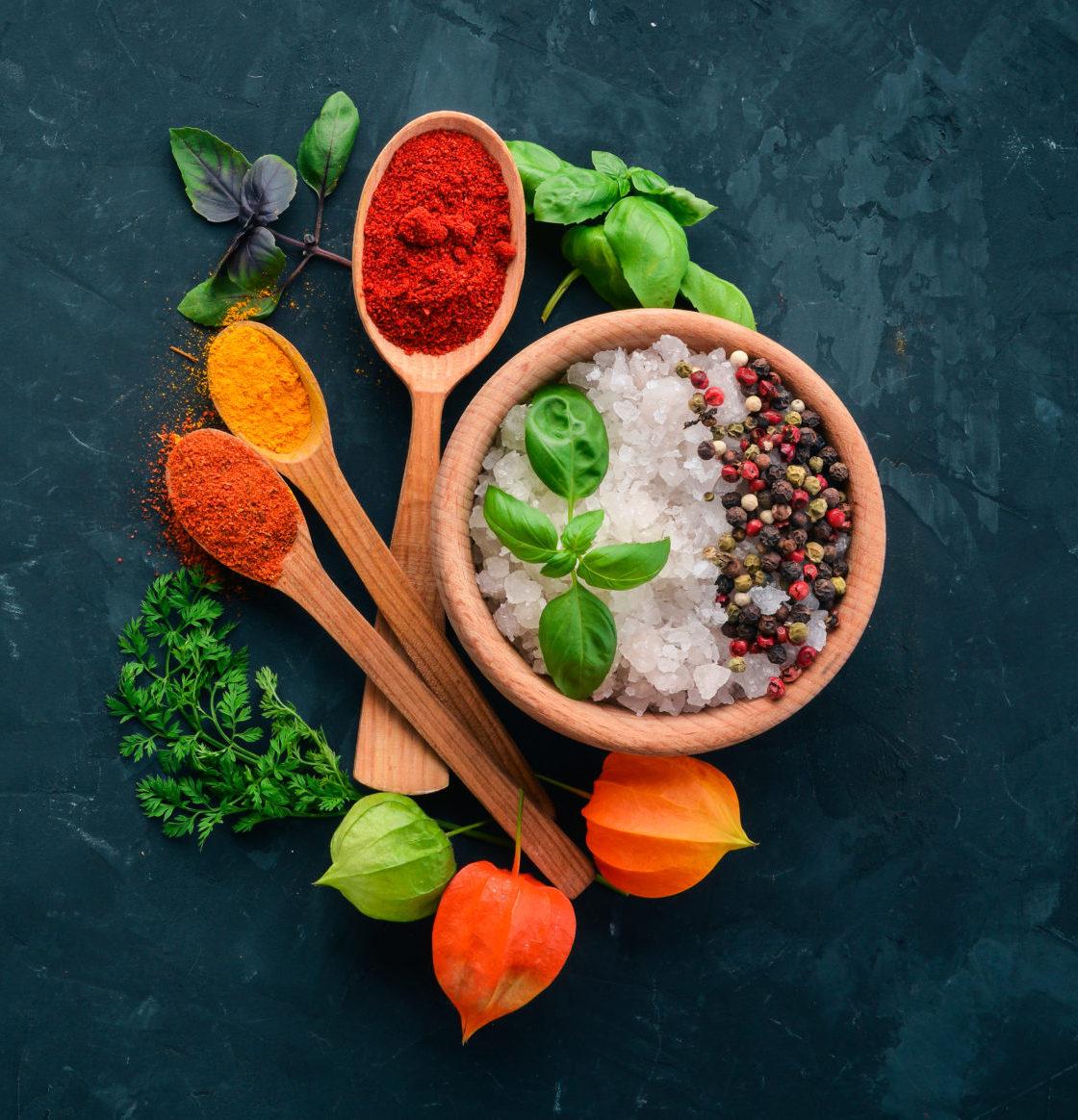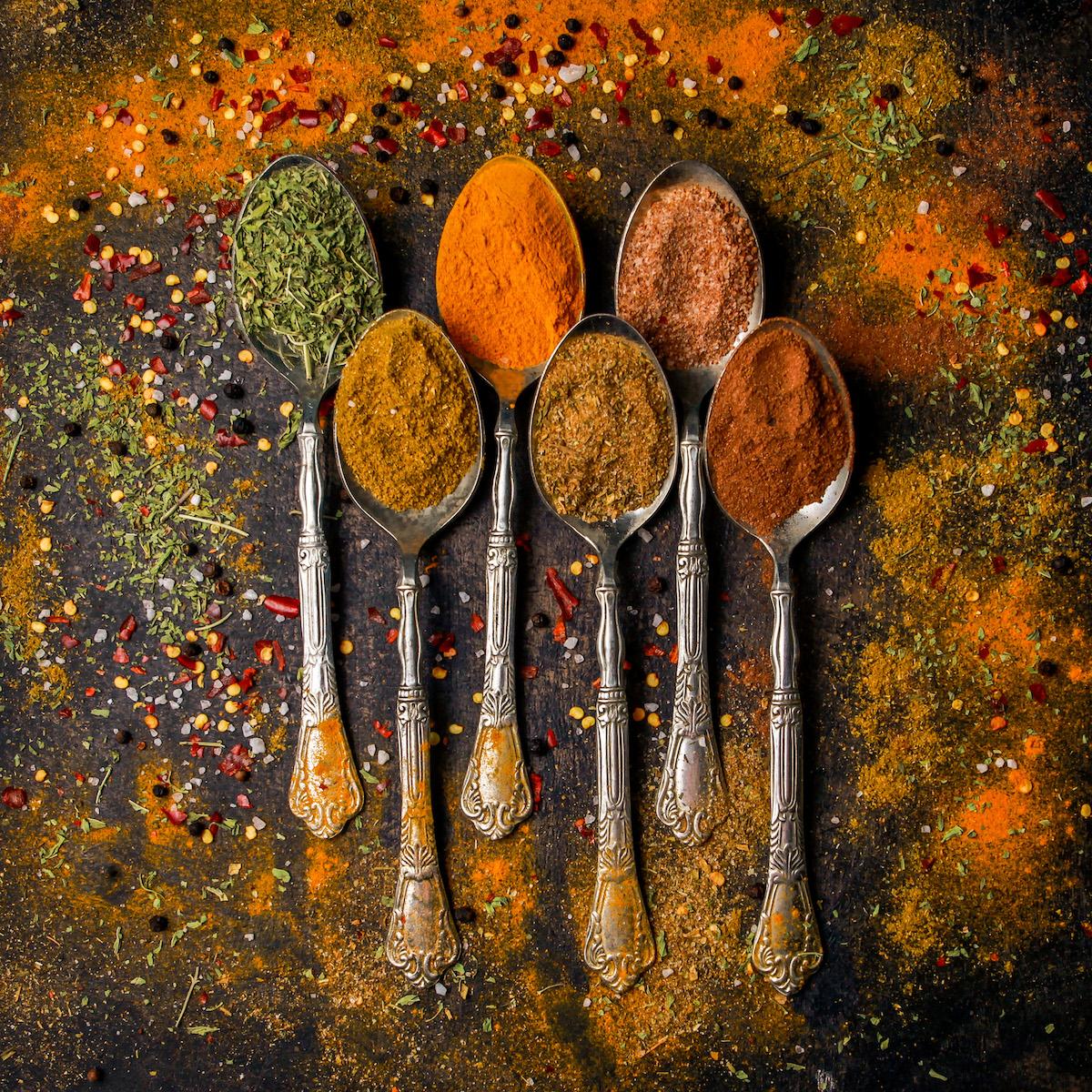How Spices are Used in Cooking to Elevate Flavor and Create Culinary Magic
Spice up your taste buds with healthy spices in your diet!
Spices not only just excite your taste buds but are composed of an impressive list of phytonutrients, essential oils, antioxidants, minerals, and vitamins that are essential for overall wellness. Spices have been an integral part of our food for centuries, and today, even become more relevant to us. Thanks to the Arab and European explorers, whose contributions in spreading them from their place of origin to the rest of the planet has immensely broadened their use and popularity all over the world!
What exactly is a spice?
Spices are derived from diverse plants or trees’ bark, buds, fruit, roots, seeds, or stems. (In contrast, a herb is derived from the leafy sections of plants that lack woody stems.) They can be either fresh or dried. Dried herbs taste stronger than fresh, but they lose their potency rapidly.
Spices are classified botanically based on the plant portion from which they are derived, as follows:
Aromatic plant leaves: Examples included bay leaf, rosemary, oregano, and others.
Fruits or seeds: Nutmeg, coriander, fenugreek, mustard, black pepper, and coriander are a few examples.
Roots or bulbs: Examples include ginger, galangal, turmeric, and garlic.
Bark: Cassia, cinnamon, etc.

Here are some widely used food spices found in most homes.
Why should we add spices to our diet?
Spices include a long number of plant-derived chemical compounds with disease-preventing and health-promoting qualities. They have been used for anti-inflammatory, carminative, and anti-flatulent qualities since ancient times.
Spices have been proven to have anti-clotting properties (they prevent platelets from clogging in blood arteries) and hence aid in relaxing blood flow, reducing stroke and coronary artery disease.
The active components in spices may aid digestion by enhancing digestive tract motility and digesting capacity by encouraging excessive release of gastro-intestinal enzymes within the stomach.
Gargling with warm thyme water might assist with bronchitis and sore throat symptoms. Additionally, the antiseptic mouthwash made from thyme is used to treat gingivitis and cavities.

Colds, influenza, moderate fevers, indigestion, stomach distress, and painful menstruation are treated with a decoction of various beneficial spices.
In traditional therapies, spices are also believed to have a natural anthelmintic effect that helps manage worm infestation.
Spices are high in minerals such as potassium, manganese, iron, and magnesium. Potassium is a vital component of cell and body fluids that aids in the regulation of heart rhythm and blood pressure. The body uses manganese as a co-factor for superoxide dismutase, an antioxidant enzyme.
To keep spices fresh, purchase and store them appropriately.
Buy spices in tiny quantities and utilize them fast to get the maximum scent and flavor out of them. To obtain the best flavor, ground entire spices rather than buying them prepared. You may use a pestle and mortar or an electric coffee grinder to ground them. For up to 6 months, store whole and powdered spices in sealed containers in a cold, dark area.
The bottom conclusion is that spices may boost your food’s flavors and smells without introducing extra fat, salt, or calories. Experiment with different spices to find which ones you prefer.

